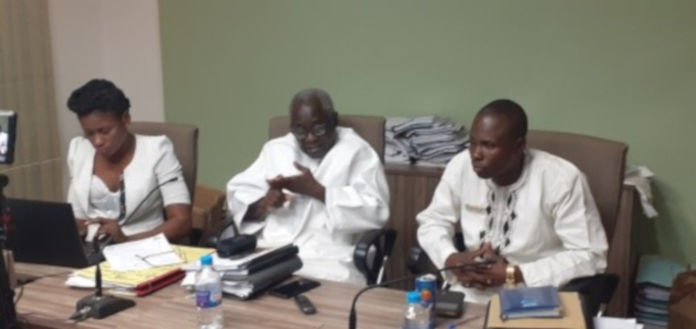By Momodou Jarju
The Chairperson of the Public Enterprise Committee (PEC) of the National Assembly Hon. Halifa Sallah has informed journalists that the postponement of their engagement with the Gambia Ports Authority was because the GPA was scheduled to appear at 2pm, but were unfortunately delayed for some reason or the other.
“Because of this delay, we have calculated that if we are to sufficiently consider their report, it will also obstruct the consideration we need to make tomorrow for the National Roads Authority (NRA),” Sallah said.
The GPA and its subsidiary Company the Gambia Ferry Services Company Limited, presented reports before PEC who requested for a consolidated presentation of both Public Enterprises, in order to have a consolidated view of the parent institution (GPA) as well as its subsidiary, the Gambia Ferry Service.
Sallah said considering their lenghty presentation of two institutions in one session, sufficient time would have to be given to deal with their reports.
“So it was considered prudent to delay the consideration of their report in favor of doing sufficient scrutiny of what has been presented by the NRA earlier on Thursday, as the best decision. And this is why we have agreed that they will appear on Tuesday at 11 O’clock for consideration, and we will be here tomorrow at 10 O’clock to consider the report presented by the NRA. This is how matters stand,” he said.
Nonetheless, Sallah said they are empowered to monitor the activities of public enterprises in order to ensure that all their operations will be on the basis of efficiency, transparency and probity; that they have three stages in making Public Enterprises accountable to the National Assembly.
“The first step is for them to submit their activity report and financial statements within three months of the end of each financial year. Number two is for them to appear to make a presentation of their submitted report. And the third phase is for the Members to consider the presentation by raising questions for Public Enterprises to answer, to clear any ambiguity or doubts in their reports or statements, so that ultimately, the committee develops a true and fair view of the state of affairs of each Public Enterprise. It is thereafter that the committee prepares a report for the plenary session of the National Assembly for final adoption,” he concludes.





















